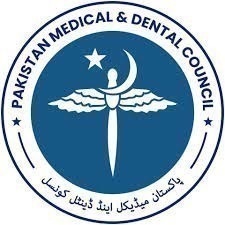Pakistani Medical Students Abroad Face MDCAT Requirement

Pakistan Medical and Dental Council PMDC has announced that passing the MDCAT Medical and Dental College Admission Test is now a mandatory requirement for Pakistani students seeking admission to medical institutions abroad. This decision aims to standardize the qualifications of Pakistani medical students and align with international medical education standards. By implementing these measures, PMDC intends to protect the interests of students and ensure they receive high-quality education. A comprehensive policy detailing this new rule will be released soon. The students can get fresh updates of PMDC Requires MDCAT for Pak Students Enrolling in Medical Colleges Abroad.
MDCAT Now Compulsory for Students Studying Medicine Abroad
Jawad Amin Khan, a member of PMDC’s executive committee, confirmed that Pakistani students who have completed their intermediate science Pre-Medical exams and wish to study MBBS or BDS abroad must now sit for and pass the MDCAT. This policy will help PMDC gather data on the number of Pakistani students enrolling in foreign medical programs and ensure their educational quality.
PMDCs Concerns About Foreign Medical Institutions
PMDC has raised concerns about the lack of transparency and available data regarding the admission procedures, curricula, and facilities at foreign medical colleges. According to Jawad Amin Khan, the council does not have full knowledge of the standards maintained by these institutions. To address this, PMDC has introduced a new policy requiring students applying for MBBS or BDS programs abroad to first pass the MDCAT.
MDCAT Certification and Registration for Medical Admissions Abroad
After passing the MDCAT, Pakistani students will be issued a certificate of success, which will be required for admission to MBBS and BDS programs abroad. Furthermore, these students will be registered with PMDC. A more detailed policy regarding this requirement will be announced soon, marking an important step toward enhancing the quality of medical education for Pakistani students.
Reforming the Equivalency Test for Returning Graduates
In addition to the MDCAT requirement, PMDC has also decided to improve the equivalency testing system for students returning from medical studies abroad. Jawad Amin Khan noted that only a small percentage of students who graduated from foreign medical colleges in 2024 passed the PMDC equivalency test. Under the new rules, the equivalency test will be managed by the National University of Medical Sciences NUMS, and only those who pass will be eligible for PMDC registration as licensed doctors.
Inspection of Medical Colleges Abroad
To ensure foreign medical colleges meet the required educational standards, PMDC will conduct inspections in smaller countries like Kyrgyzstan and Uzbekistan, which have become popular study destinations for Pakistani students. These inspections will help verify whether these institutions meet the PMDC’s standards, including the availability of teaching hospitals.
Financial and Educational Challenges for Students Studying Abroad
Jawad Amin Khan also highlighted the financial difficulties faced by Pakistani students pursuing medical education abroad, with tuition fees alone reaching $10,000 annually. This figure does not include accommodation and living expenses, and on average, Pakistani students spend $50,000 per year studying abroad. This results in a significant outflow of foreign exchange from Pakistan. Additionally, the medical curricular in these countries often differ from those in Pakistan, raising concerns about the quality and competence of graduates returning home.
Misleading Social Media Campaigns
PMDC has also expressed concern over misleading social media campaigns that falsely advertise foreign medical colleges as offering high-quality education and facilities. Many students are being deceived by these advertisements and are enrolling in institutions that lack essential amenities, such as teaching hospitals. This issue is particularly common among Pakistani students who are attracted to medical programs in smaller countries through local agents and deceptive promotions. The new regulations introduced by PMDC aim to protect students from such misinformation and ensure they receive education that meets Pakistan’s medical standards.















